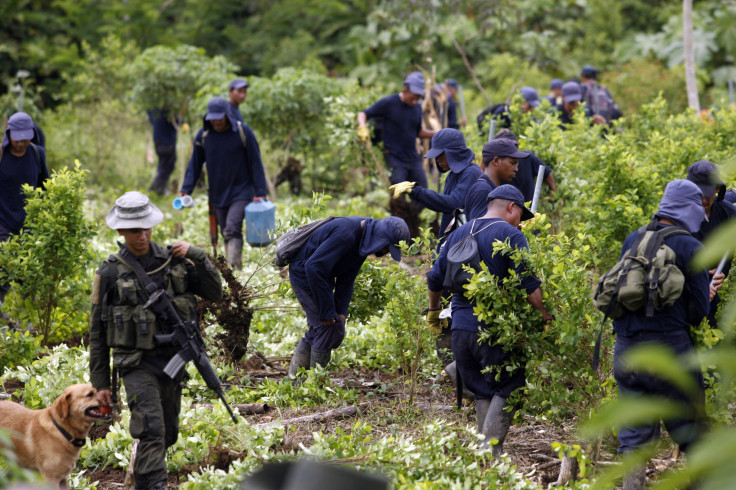Cocaine Blues: Colombia's Farc Rebels Want Some Drug Crops Legalized

Members of the Revolutionary Armed Forces of Colombia, or Farc, rebel group of Colombia called for the legalization of some narcotic plant crops during peace negotiations with the Colombian government in Cuba.
The rebel’s chief negotiator, Ivan Marquez, proposed that small amounts of coca, poppy and marijuana cultivation be legalized as part of a land reform initiative in the Latin American nation.
"We need to reorientate the use of land toward sustainable agricultural production," Marquez said, the BBC reported, adding that the government needed to consider “legalizing some marijuana, poppy and coca leaf plantations for therapeutic or medicinal reasons, for industrial use or cultural ends."
The distribution of land in Colombia has been a major issue in the long simmering conflict between the rebels and the state that began when the Farc took up arms in the 1960s.
Marquez said that the government should not punish rural communities that grow such crops, while Colombia remains the primary center of global cocaine production, which is derived from the coca leaf, a plant commonly used as a mild stimulant and traditional remedy for altitude sickness.
One of Bogota’s major concerns is cracking down on drug trafficking in Colombia, which it has accused the Farc of engaging in to fund its operations.
The government has demanded that Farc assist in ending drug trafficking as part of a potential compromise.
The rebels made additional proposals in resolving the issue of land reform, requesting that the government place a moratorium on new mining and oil drilling permits to preserve some 49 million acres of land for farming.
The group also proposed that 62 million acres of land, one-fifth of Colombia’s territory, be redistributed to the poor.
Negotiations to end the armed conflict began in November in Oslo, Norway, and later moved to in Havana, Cuba.
A major sticking point in the talks have been the refusal of the Farc to accept the government’s demand to disarm.
The Farc announced a two-month, unilateral cease-fire in November, which the government refused to observe, expressing concern that the rebels would simply use the armistice to regroup.
Bogota estimates the Farc’s manpower at less than 8,000 members, while the rebels claim their numbers amount to around 18,000.
© Copyright IBTimes 2024. All rights reserved.




















